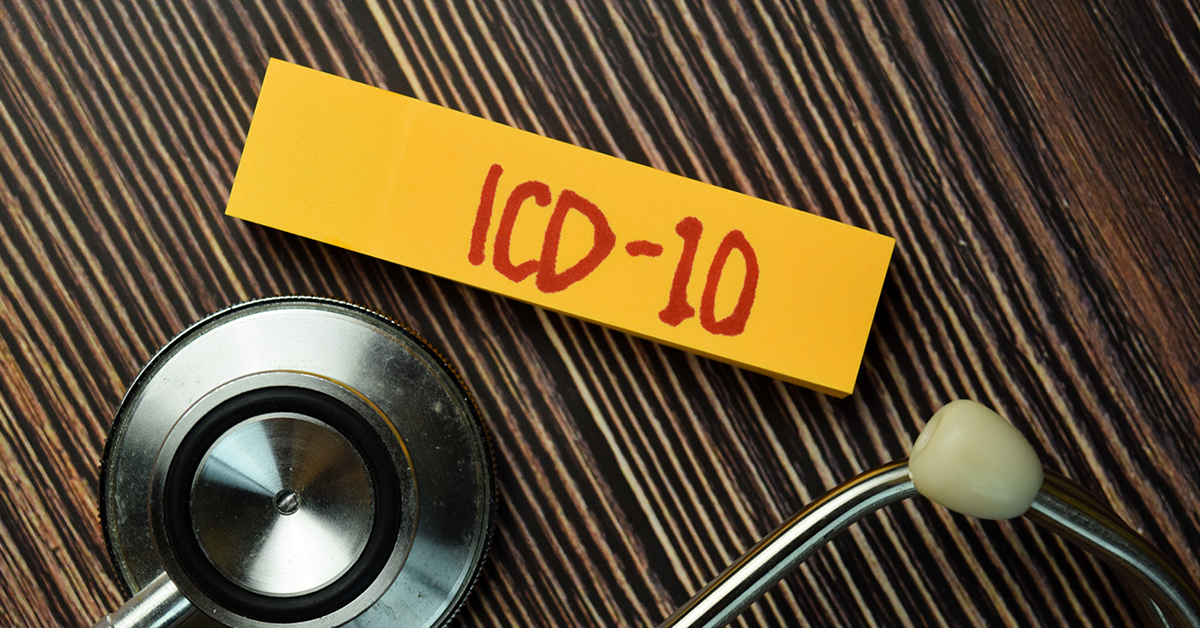Several diseases can induce alterations in the gastrointestinal system, influencing overall health. Different diseases might exhibit similar painful symptoms. The symptoms may be difficult to identify and may be minor, moderate, or severe. The symptoms vary depending on where the disease is, how far it has gone, and how severe it is. Some of the most prevalent symptoms are bloating, constipation, nausea/vomiting, stomach discomfort, bleeding, heartburn, difficulty swallowing, and weight gain or loss.
Early identification and treatment can lessen the severity of symptoms and the danger of life-threatening consequences. From the perspective of medical billing and coding, gastroenterologists must document the disease’s location, consequences, and symptoms. Physicians must use the corresponding ICD-10 codes when diagnosing these common digestive illnesses.
Today’s article sheds light on gastroenterology ICD 10 codes. This article explores the common ICD-10 code for gastroenteritis and other gas ICD-10 codes to make medical coding and billing easy for physicians.
ICD-10 Code for Gastroenteritis
Norovirus infection causes gastroenteritis (stomach flu), typically transmitted through contaminated food or drink or contact with an infected person. The disease targets the intestines, resulting in vomiting, low-grade fever, stomach cramps, and muscle aches in rare circumstances.
Medical billing and coding for gastroenteritis are difficult for multiple reasons. For accurate clinical documentation, a physician must have a comprehensive knowledge of the ICD-10 code for gastroenteritis. It is crucial to get payment.
Extensive knowledge of the ailment, including its symptoms, causes, and treatments, is crucial for the correct ICD-10 code for gastroenteritis diagnoses.
K52.9 is a billable/specific ICD-10 code for gastroenteritis that can be used to indicate a diagnosis for payment purposes.
ICD-10 code K52.9 represents the medical diagnosis of unspecified noninfectious gastroenteritis and colitis. It is one of the gastroenterology ICD 10 codes that can be used to bill patients. During the fiscal year 2023, which begins on October 1, 2022, and concludes on September 30, 2023, the code can be used to transmit HIPAA-covered transactions. When there is insufficient or no clinical information about a particular ailment, codes such as K52.9 are utilized. These codes should be used when they best depict a patient’s condition.
The ICD-10 code for gastroenteritis (K52.9) includes the following conditions:
- Diarrhea
- Jejunitis
- Enteritis
- Ileitis
- Sigmoiditis (noninfectious)
The conditions that are excluded from the ICD-10 code for gastroenteritis are as follows:
- Infectious diarrhea & enteritis (A09.0)
- Diarrhea & enteritis of unspecified origin (A09.9)
- Functional diarrhea (K59.1)
- Neonatal diarrhea (P78.3)
- Psychogenic diarrhea (F45.3)
The symptoms associated with ICD-10 code for gastroenteritis (K52.9) are:
- Abdominal pain
- Stomach cramping
- Unintentional weight loss
- Muscle pain
- Fever
- Nausea and vomiting
Clinical Information of K52.9 (ICD-10 Code for Gastroenteritis)
K52.9, one of the common gastroenterology ICD 10 codes, represents gastroenteritis, an inflammatory disorder that can affect the upper or lower gastrointestinal tract. Although viruses are the most likely causative agent in such circumstances, bacterial infections, parasites, or even unpleasant responses due to toxins could also be responsible. It can be passed on through direct contact with an infected individual and contaminated food or water consumption. Diarrhea, abdominal pain, vomiting, headache, fever, and chills are all common symptoms of K52.9. The most common side effect of gastroenteritis is dehydration, which can be severe in some cases.
Gastroenterology ICD 10 Codes
In the table below, you can see the gastroenterology ICD 10 codes:
| Gas ICD 10 Codes | Codes’ Description |
| K52 | Other & unspecified non-infective gastroenteritis & colitis |
| K52.0 | Gastroenteritis and colitis due to radiation |
| K52.1 | Toxic gastroenteritis and colitis |
| K52.2 | Allergic and dietetic gastroenteritis and colitis |
| K52.21 | Food protein-induced enterocolitis syndrome |
| K52.22 | Food protein-induced enteropathy |
| K52.29 | Other allergic and dietetic gastroenteritis and colitis |
| K52.3 | Indeterminate colitis |
| K52.8 | Other specified non-infective gastroenteritis and colitis |
| K52.81 | Eosinophilic gastritis or gastroenteritis |
| K52.82 | Eosinophilic colitis |
| K52.83 | Microscopic colitis |
| K52.831 | Collagenous colitis |
| K52.832 | Lymphocytic colitis |
| K52.838 | Other microscopic colitis |
| K52.839 | Microscopic colitis, unspecified |
| K52.89 | Other specified non-infective gastroenteritis and colitis |
| K52.9 | Non-infective gastroenteritis and colitis, unspecified |
As per the estimates by the Centers for Disease Control and Prevention (CDC), around 51 million individuals visit the emergency room annually due to digestive system disorders. The treatment and prevention of these conditions rely on the patient’s medical history and the severity and frequency of their symptoms. Changing a person’s diet and level of physical activity is frequently the first step doctors recommend for improving digestive health. The ability of doctors and nurses to correctly report common digestive disorders depends on their familiarity with the associated ICD-10 codes. So, having a sound knowledge of gastroenterology ICD 10 codes is vital. Physicians can improve the quality of treatment they give to their patients and the accuracy of their submitted claims by taking the medical billing and coding services of Precision Hub.
See Also: Updated Moderna Vaccine And Booster Cpt Codes For Children
Conclusion
Medical billing and coding in gastroenterology are complex. To correctly report digestive disorders, doctors must comply with the ICD-10 code for gastroenteritis and other GI disorders. By working with a reputable medical billing and coding company, physicians may improve the quality of treatment they deliver to their patients and the accuracy of the claims they submit to insurance companies.
Precision Hub’s experts are here to care for your billing and coding needs. So, you won’t need to worry about medical billing and coding. As part of your medical billing team, we can assist you in making lasting improvements.
Schedule a free demo to get all the information you need to decide if Precision Hub is a good fit for your practice.



